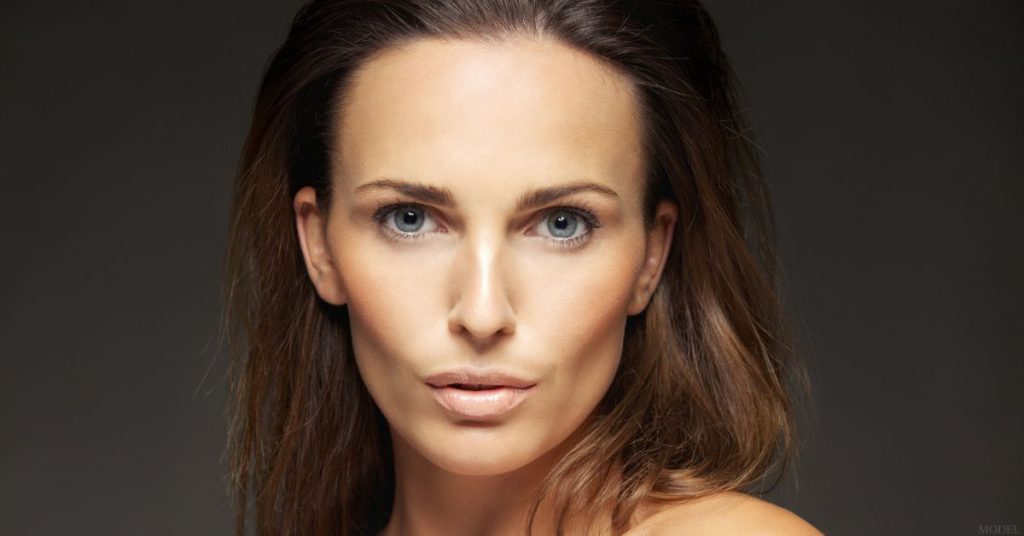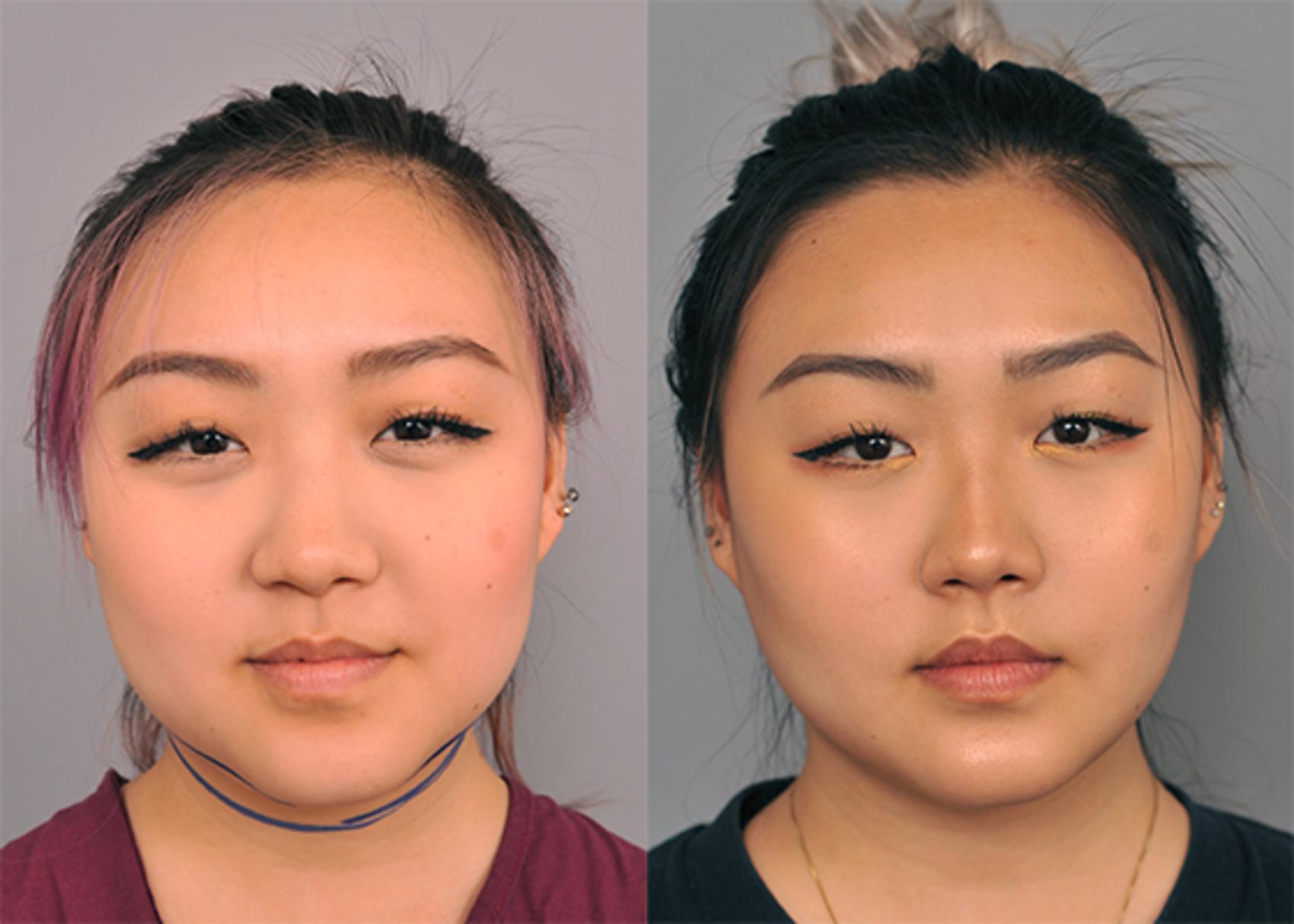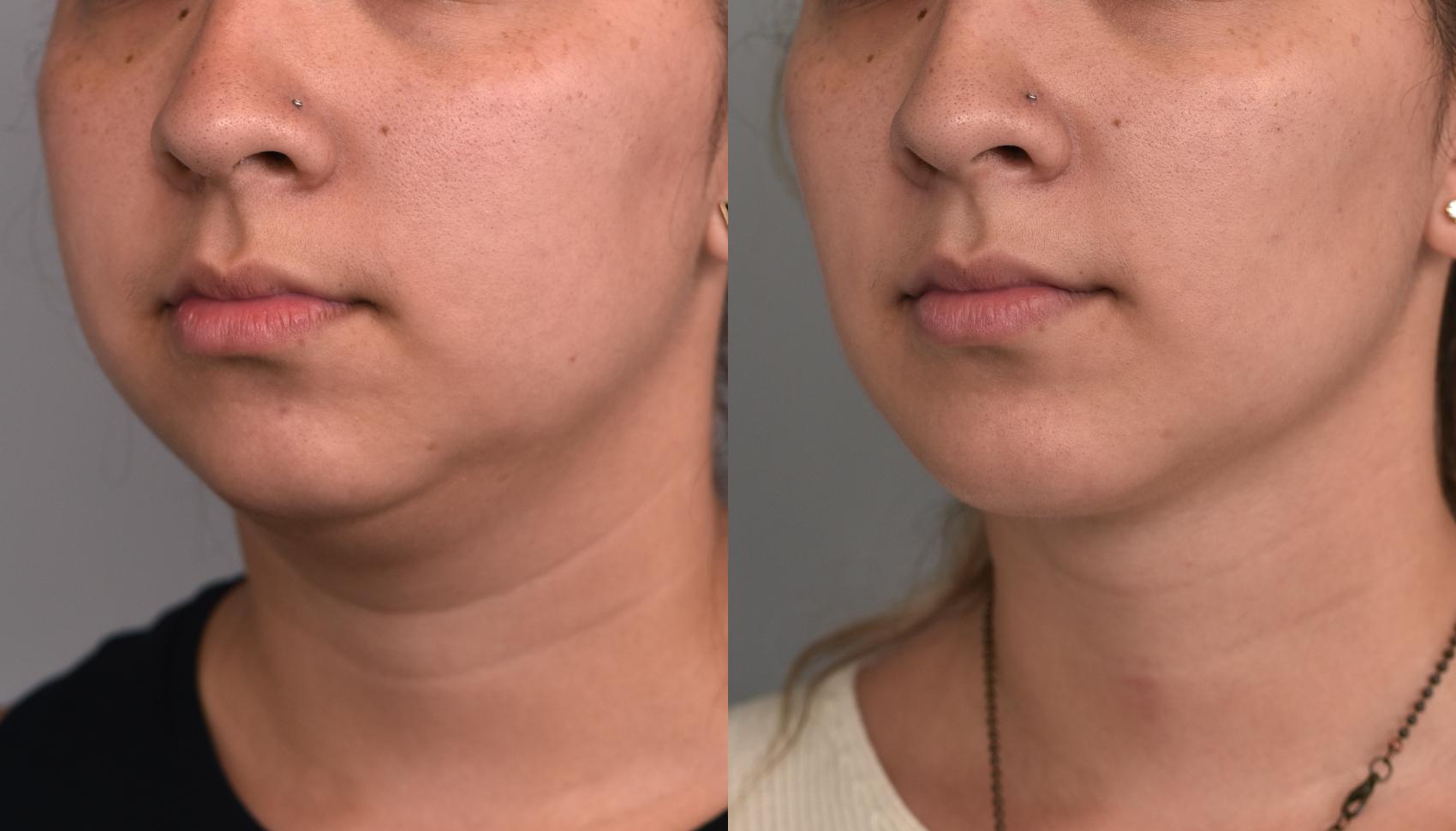Facial contouring procedures can create coveted features such as angular jawlines and well-defined chins. Buccal fat removal is a surgical technique that’s gained popularity in recent years for people who want sculpted cheekbones.
In this post, I’ll explain how buccal fat removal is performed and who can benefit from the procedure.
What Is Buccal Fat?
Buccal (pronounced “buckle”) fat is found in the lower face beneath the cheekbone, which can, in some people, make the face appear more rounded. Your buccal fat is related to genetics, not your weight, so losing weight will not slim this area significantly.
Surgically removing some of that fat creates a more sculpted appearance. During a buccal fat removal procedure, I typically remove about 1.5 grams of fat, which is enough to contour the cheeks without looking unnatural. Once removed, buccal fat will not grow back.
The Rise of Buccal Fat Removal Surgery
The buccal fat removal procedure isn’t new, but wasn’t commonly performed in the past because it requires exceptional technical skill. However, since the early 2020s, buccal fat removal has seen a boom in demand, particularly among younger patients. This surge in popularity can be attributed to several factors:
- Social media influence
- The “Zoom boom” that began during the pandemic
- Celebrities discussing it after undergoing the procedure
Many people have become more conscious of their appearance, especially during video meetings, leading to a greater interest in facial contouring procedures.
Ideal Candidates for Buccal Fat Removal
Even though the procedure has seen a sudden surge in popularity, it’s not for everyone. Good candidates for buccal fat removal share certain characteristics. These include:
Having Excess Cheek Fat
This seems self-evident, but some patients considering buccal fat removal are not good candidates because they don’t have excess fat in their cheek area. People with naturally thin or narrow faces should avoid buccal fat removal, as it could lead to a gaunt or hollow appearance, especially as they age.
Being in Your 20s to 30s
The majority of buccal fat removal patients are younger than other patients seeking facial rejuvenation procedures. They’re often genetically predisposed to having “chipmunk” or chubby cheeks, which can create the appearance of a baby face. Removing buccal fat in older individuals could potentially result in a prematurely aged appearance.
Realistic Expectations
It’s important to understand the procedure’s limitations and have realistic expectations about the results. It’s also important to recognize that while buccal fat removal can enhance facial contours, it’s not a solution for all facial aesthetic concerns.
Being at a Stable Weight
Significant weight fluctuations can affect the overall facial appearance and potentially compromise the results of buccal fat removal.
Seeking Long-Lasting Results
The fat removed during the procedure is gone for good, leading to long-lasting results. That’s why people looking for a permanent solution to their facial fullness may find this procedure particularly appealing. You can read more about aging after buccal fat removal in an earlier blog post.
Being in Good Overall Health
As with any elective surgical procedure, good candidates for buccal fat removal should be physically and emotionally healthy to ensure a smoother recovery process and minimize the risk of complications.
Buccal Fat Removal Alternatives
Buccal fat removal is not the only option for facial contouring. Cheek liposuction is a popular alternative if you want to remove excess fat from a broader area of the lower face. Liposuction is also an effective option for excess fat below the chin, creating a more well-defined jawline. In some cases, I combine buccal fat removal with facial liposuction.
Choosing a Plastic Surgeon for Buccal Fat Removal
While buccal fat removal can effectively enhance facial contours for the right candidates, it’s important to choose a plastic surgeon with extensive experience performing the procedure. The key to successful outcomes lies in careful patient selection, realistic expectations, and skilled surgical technique.
You can request a consultation using the online form to meet with Dr. Sterry personally or call us at (212) 249-4020 to schedule an appointment.









Leave a Reply